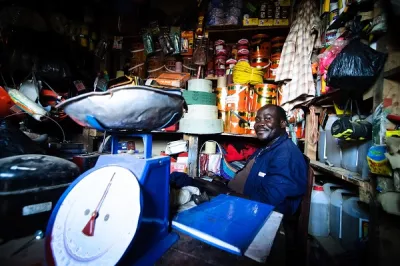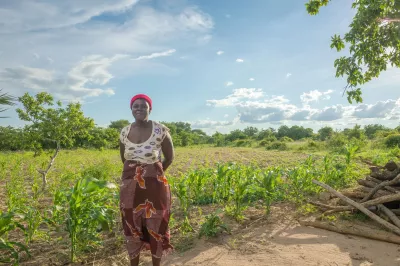The Allure of A Cashless Society
PayPal made news recently by launching a new report, Money: The Digital Tipping Point, which predicts that by 2016 UK consumers won’t need cash or a wallet to go shopping. I’m not sure why the UK market was the focus of this report, but I won’t tell PayPal that KPMG just came out with its own research that showed that “when it comes to mobile banking, consumers in the UK are more resistant than elsewhere. Only 27% of Brits surveyed said they had used some form of mobile banking in the past six months (globally 52%).”
But Carl Scheible, Managing Director of PayPal UK, is persistent and argues,
" We’ll see a huge change over the next few years in the way we shop and pay for things. By 2016, you’ll be able to leave your wallet at home and use your mobile as the 21st century digital wallet.
I’ve been intrigued to see several recent new stories spouting off about the grandiose vision of a cashless society. To a certain extent I thought we had moved past this debate. While recognizing it as desirable, this high and mighty goal seems somewhat unattainable, at least in the short to medium term. At CGAP, a former colleague and I wrote about mostly failed attempts to go cashless in developed economies in the late 1990s and early 2000s through various mobile and electronic payment schemes. A few of us also wrote about the attempt in Singapore to dictate a cashless economy about 10 years ago, but to my knowledge I believe there’s still cash floating around Singapore.
Cashless seems a bit naive; cash lite seems more realistic, although still a big challenge despite the innovations that have happened since these initial attempts a decade ago.
Yet private companies, governments and donors seem fixated on this idea of eliminating cash. Zimbabwe recently announced its Smartpay electronic banking concept to facilitate cashless transactions through the deployment of POS devices and smart cards. I admit that the article seems a bit too optimistic to me,
" The successful implementation of Smartpay’s electronic banking concept could be a major stride towards the country becoming a cashless society. Financial experts argue that cash is expensive — a cost on society — and should be replaced by a cashless society as processing a transaction on a card is cheaper than handling cash.
We all can appreciate the appeal of “cashlessness”. But I’m doubtful that simply distributing a few hundred POS machines throughout Zimbabwe will get anywhere close to going cashless.
Let’s go back to basics for a second. How does a cashless ecosystem bring more poor, unbanked people into the financial system and provide them with useful, safe and efficient financial services? That is ultimately why we discuss innovative business models and cool technologies on this blog. Not for the sake of the models and gadgets themselves, but because we hope that they serve a greater purpose.
In order to link the two (new business models and cool gadgets with services that reach the unbanked), a deliberate strategy must be deployed. Experience shows that early adopters of branchless banking tend to be the already banked. Even for M-PESA, research from 2008 showed that only 25% of users were previously unbanked, although by late 2009 this had increased to 50%.
A deliberate strategy to reach the unbanked would be my humble word of advice to the government of Rwanda, which just announced a huge partnership with Visa to develop the country’s payments system. The National Bank of Rwanda Governor Claver Gatete said,
" The partnership between the government of Rwanda and Visa is an opportunity to increase efficiency and inclusion through the use of electronic financial services.
The emphasis in the quote above is mine because the risk is that this piece of the puzzle (that is, inclusion) gets forgotten.
So while everyone would love to see cash become a thing of the past, I think it might be better to focus on the day to day work of establishing partnerships, as hard as this may be, launching new services, and making sure that these services don’t lose sight of the unbanked. The news feed shows that things continue to move:
For example, Habib Bank Limited, the largest privately owned bank in Pakistan, announced its partnership with Ufone, Sybase 365 and AbacusConsulting to launch its own branchless banking solution sometime next year. In India, HDFC Bank and Vodafone have partnered to launch a mobile banking product “for financial inclusion”. One headline from among several about this initiative is telling. It explains that this service
" will enable people in remote villages to send or withdraw cash easily.
Once again, the emphasis is mine and once again, it appears that we have a long way to go to get to a cashless world. But I think that’s alright for now. Progress is being made on other fronts that need our attention.




Comments
Important point.
Important point.
Another good – anecdotal – piece is Rutherford’s observation here: http://financialaccess.org/node/2988
We need better studies of the interaction on the relationship between formal and informal finance.
Cash is still very efficient
Cash is still very efficient for many transactions, it is not clear how can mobile payments beat cash especially for over the counter transactions in the developing world.
I wrote an article on this:
Cash, the competitor of mobile payments
Original, in Spanish:
http://www.movilion.com/vercont.php?contenidoID=5921
Google translation to English:
http://tinyurl.com/7j6kllz
Add new comment